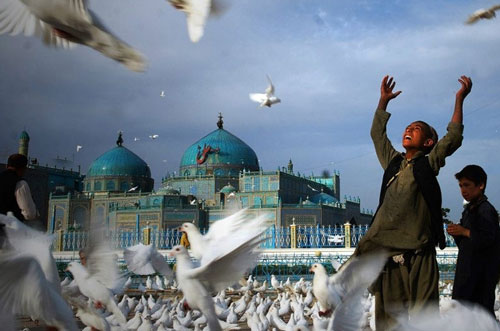Among the regional and global states, China has played a prominent role in Afghan peace process. China is Afghanistan’s most powerful neighbor and a state with more than one billion population and a strong government, which has featured its order, capacity, and authority to the world in fighting against the novel coronavirus.
As the most powerful regional state and Afghanistan’s neighbor, China, along with other regional stakeholders and neighboring countries, is likely to extend its constructive role in Afghan peace process from political, economic, and security aspects once the NATO troops withdraw from the country. It is stipulated in Part One of the US-Taliban peace agreement, “The United States is committed to withdraw all military forces of the United States, its allies, and Coalition partners, including all non-diplomatic civilian personnel, private security contractors, trainers, advisors, and supporting services personnel within fourteen (14) months following announcement of this agreement, and will take the following measures”. The withdrawal of US and NATO troops will put a great and serious effect on Afghanistan’s policy, economy, and security. The troop pullout comes as “war on terror” has not borne the desired result. None of the objectives set during the presence of the coalition forces have been fully met. Neither terrorist networks are dismantled nor did stability emerge in the country. In such a case, the role of Afghanistan’s neighboring countries, especially the rich and powerful states, is likely to increase in the country’s peace, security, policy, and economy.
In international equations, China, on the one hand, is recognized as a power at the global level, and on the other hand, it also enjoys firm relations with Iran and Pakistan, both of which are engaged in Afghanistan’s issues of war and peace. At least within the past two decades, China has not had military interference in any countries and sought to consolidate its relations with other states through extending economic exchanges. Such an approach carries much significance for Afghanistan.
Peace and stability in the country are in the interests of both Afghanistan and China. Sustainable peace will not emerge in Afghanistan through signing agreements, which are the beginning of a long road. As soon as the Taliban lay down their arms, rehabilitation, economic development, poverty reduction, good neighborliness, spirit of tolerance, and hope for the future will be conducive to sustainable peace. China is able to support Afghanistan both politically and economically in bringing sustainable peace. A war-torn and unstable Afghanistan might be detrimental to China since terrorist groups will find safe haven, which will be a potential threat to regional states, and will also create roadblocks before China’s long-term economic programs in the region, including the Belt and Road Initiative (BRI).
Afghan former and current presidents agree with the significant role of China in Afghanistan’s peace and political and economic future. They believe that since China enjoys a strong relation with Pakistan, it is able to play a positive in Afghan peace process. Taking several trips to China, Former Afghan President Hamid Karzai urged China to use its leverage on Pakistan so that it could pressure the Taliban to accept peace. During his first trip to China in 2014, President Ghani also asked China to support Afghanistan in establishing peace. In 2015, China engaged in peace talks between the Taliban and the Afghan government. Beijing also hosted trilateral dialogue – including China, Pakistan and Afghanistan – in 2017 as all sides called on the Taliban to join peace process. Moreover, China-Afghanistan-Pakistan Foreign Ministers’ Dialogue was held in Kabul in 2018 and Chinese Foreign Minister proposed two main suggestions: First, the Taliban had to join the negotiations of peace. Second, China was prepared to act as a mediator to improve relations between Kabul and Islamabad.
China has constantly revealed its interests to play a constructive role in Afghanistan so that the peace process moves forward. US Special Envoy Zalmay Khalilzad had a trip to Beijing on July 2019 after completing its seventh round of negotiations with the Taliban in Qatar. A Taliban delegation also traveled to Beijing on September 2019 to discuss with China’s Special Envoy on Afghanistan affairs. In November, China declared its preparation for hosting Afghanistan’s peace talks.
Part of China’s strategic view for the future can be reflected in the BRI or new Silk Road. The BRI was first proposed by Chinese President Xi Jinping consisting of two parts “the Silk Road Economic Belt” and “21 Century Maritime Silk Road”. More than 65 countries have joined this modern megaproject, forming two third of world population.
Home » Opinion » The Significance of China’s Role in Afghan Peace Talks
The Significance of China’s Role in Afghan Peace Talks
| Moh. Reza Huwaida

